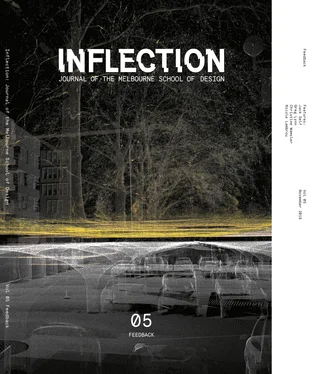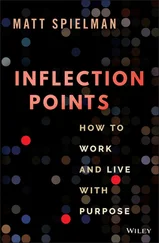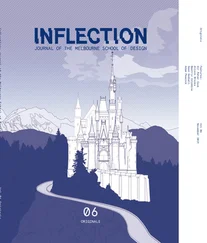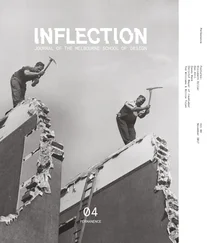Jack visited Melbourne in October 2017 to deliver a talk as part of the annual MPavilion program. During his visit, he participated in a conversation with students at the Melbourne School of Design convened by Colby Vexler and Scott Woods.
Inflection spoke to Jack in March 2018. Our wide ranging discussion attempted to define the designer’s position in relation to the vast network of agents and actors that we must navigate. From our discussion, we gained an understanding of how designers can practice and communicate critically—and ethically—within the confines of a capitalist society.
We think of big data as an objective, quasi-scientific procedure of analysis. But its parameters are currently being dictated by external forces. How can architects and designers exert influence over how data analytics are implemented within the built environment?
Architects certainly can have an influence on this. It has to do with the ‘meta-metrics’ that we use to assess the value of different types of information. During the early days of parametricism in the mid-2000s, many parametric projects that were executed by Zaha Hadid Architects or under [ZHA partner] Patrik Schumacher at the Architectural Association, presented design as a logical and inevitable consequence of data-sets. They would say, for example: “We analysed the site for ten weeks, and using that data we’ve designed a building that is a perfect response to the existing patterns of use of the site.” The difficulty with that is, first of all, you’re not making a proposition; you’re just making something which is a reaction to existing conditions. It would be an insane prospect to design a building that perfectly responds to the conditions of 1922 when you’re actually building a hundred years later than that. During that intermediate time, societies change in their structure, human use patterns change—so you cannot only respond to data. You have to also make a proposition.
Then comes the value judgment, which is to say: “this data set is more valuable than another.” For me, it comes back to a core principle of mine, which is: I want to be free, and I want everyone else to be free too. What does a value judgment like that mean? It can be drawn into dangerous territory of ultra-libertarians who think that everyone should own guns and who don’t believe in the nation state. But it can also lead you to more progressive and liberal ideas about freedom, and particularly the right to privacy.
The right to privacy is one of the most important values that is at the core of democratic societies. Therefore, it is important that you have a space which is your own; which is anonymous; which is private; from which you can form ideas about what you believe is the right way to engage with society. The problem with big data at the moment is that it’s being used to undermine the right to privacy of individuals. And architects can certainly have a role to play in terms of how we manage those data-sets, and then how we translate them into built form in order to promote the possibility of being unobserved.
As building industry and construction jobs are made redundant by automation, are architects obliged to take a principled stance in defence of those whom that transition is disadvantaging?
The future of automation is highly problematic. Automation is happening in a way that it hasn’t happened in the past. Previously, new technologies destroyed old industries but created new jobs that tended to be better paying, and often there were more jobs as a result. That’s no longer the case. Automation is reducing the number of total productive hours in society, and this a global first. Previously, when you replaced the horse and cart with the car it created huge new industries of many kinds, everything from drive-in cinemas to road infrastructure, new models of housing and transport and so on. But the self-driving car doesn’t do that. It doesn’t create new work.
As technology advances in the built environment we have to be very careful that, in engaging with these technologies, we’re not disadvantaging not only the general public, but also the architectural profession ourselves. Any augmentation to our previous mode of working is great, but when a CAD program makes the architect as designer obsolete that becomes a more problematic question. That’s another danger that’s inherent in labour automation. Therefore, there needs to be a social argument that goes along with it. The pursuit of technology in itself is not an end.
We can always move ourselves towards greater efficiency, but I don’t know where that gets us.
Well, we just end up working longer. Technology is actually accelerating the amount of work that you have to do. Work days are getting longer. The blurring between public and private activities is of particular concern, because it means you’re always working. That undermines a non-commercial sense of ourselves. I don’t even know if I have any personality left, actually; there is really only my work.
So you become this kind of abstracted vector within a system, which is driving you towards ever more work and ever more involvement with these systems. I would say that we have to resist them, and find ways to resist them in our daily life. The day is probably the largest amount of time that any human can realistically hold in their head as a prospect. Therefore, if you alter your daily patterns, you alter your entire life. And therefore, habits become very important.
The work of architects and designers seems to be largely dictated by market forces. Addressing issues like social inequality seems out of our reach. As a result, many of us will move into risk-averse corporate firms. Conversely, your work attempts to question the underlying forces which govern the property market. Is this part of a wider strategy?
At the level of an ideological strategy, I don’t know to what extent it’s moving outside of architecture for me. Architecture already is a discipline which involves a huge variety of different data sets as part of the design process. It’s one of the most sophisticated forms of design. If we’re thinking already about environmental conditions, historical context, technology, planning, legal considerations, regulations, materiality, the politics of space, then extending that to include an understanding of financial systems and the real estate market seems quite integral.
The wider strategy is simple but also extremely ambitious, which is to understand whether it’s possible to resist capitalism from within the world of architecture. It is my firm belief that the only existential threat to capitalism has to do with altering real estate markets. It’s only through changing the way in which housing is valued—or particularly the way in which land is valued—that we can have any impact on the current economic system.

Max Mein, 2018. Photograph, Melbourne. Image reproduced with author’s permission.
Can this change be initiated by architects, or can it only occur through a combined efforts with some other industries or actors?
The architect has always orchestrated other industries and agents, and is subject to other agents as well. I would question the idea that an architect is the author of a building, because the architect is only one part of an entire mechanism. The majority of the built environment is not generated by architects, so I’m not so sure the architect can make broad systematic changes.
My hope would be that the architect as a designer is able to see the opportunities and the weaknesses from inside the system itself. This is why I’m also not hugely interested in the design of one-off buildings. I’m interested in what I would call the model: the idea of the building as something that can be imitated and replicated at scale. It’s only through leading by example that architects can have any influence.
Читать дальше













